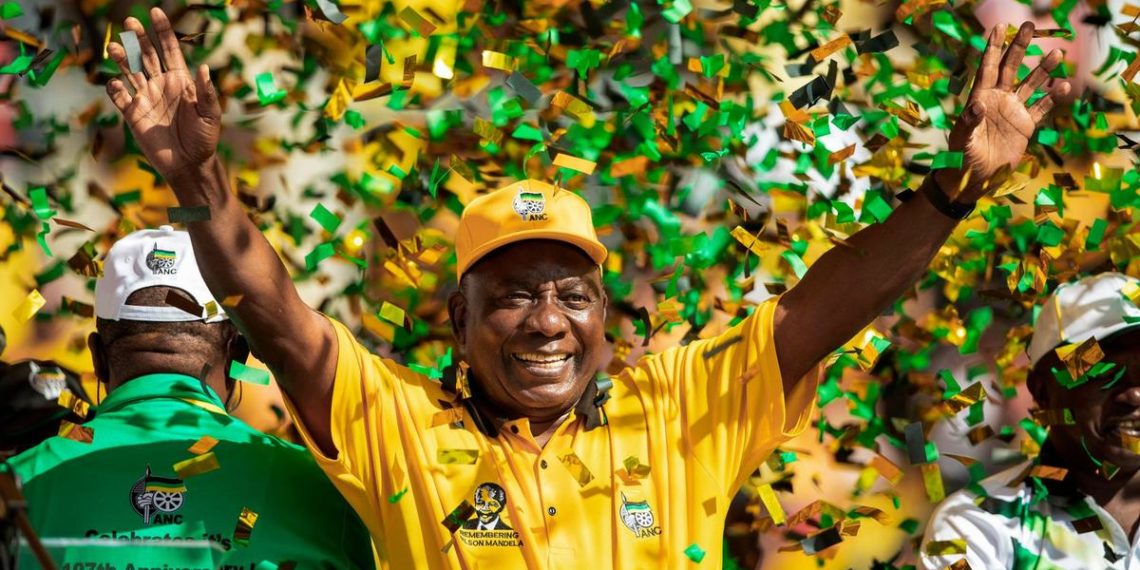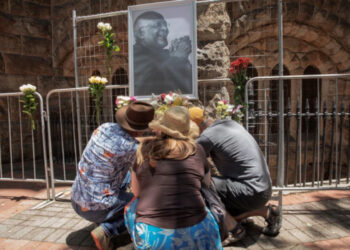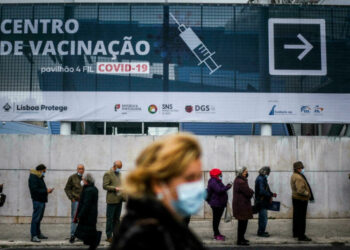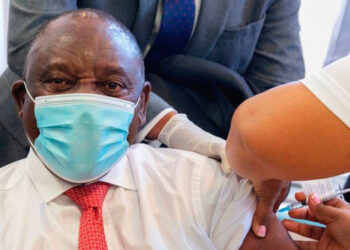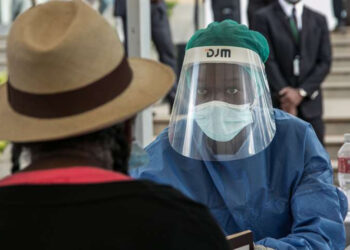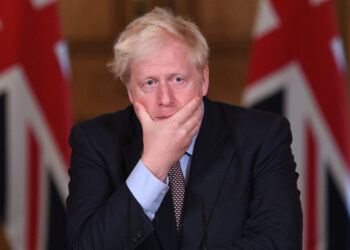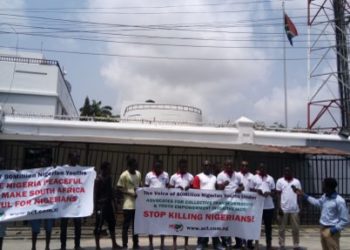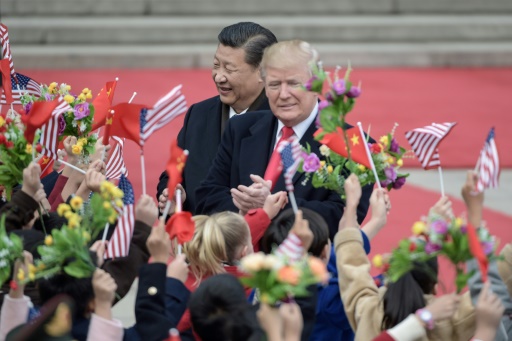During the 1968 student rebellion in Paris, Berlin, and Berkeley, slogans appeared on washroom walls: “If elections were to change anything, they would have been abolished long ago.” These political “wisdoms” originated from anarchists. They aimed at encouraging cynicism towards “the system,” not to motivate engaged citizens. Elections bestow legitimacy; they are the heart of democracy when “the people” decide who should represent them in political decision making, even if nothing changes afterward. The recent sixth democratic elections in South Africa are a case in point.
In May 1994, the glorious country of Nelson Mandela experienced its first non-racial election with long queues of voters waiting for hours. After almost everyone had predicted a racial civil war to destroy the country, a negotiated settlement had produced a widely admired progressive constitution. Rationality and the spirit of compromise prevailed on both sides. South Africa sailed at the top of the world. The “miracle” was held up as a model for peaceful conflict resolution to propel the only industrialized economy on the continent into a flourishing African Singapore.
A quarter-century later, the poll on May 8 was about rescuing the country from a mess. High unemployment, shameless corruption, escalating crime rates, dismally failing education and health services for the poor, debt accumulation and a low growth rate created a climate of disillusionment with all politicians. Why should I have to choose between crooks, was a sentiment often heard on the street.
Corruption, Incompetence, and Nepotism
Corruption, incompetence, and nepotism had become so blatant and endemic at all levels of government over nine years of wasted Jacob Zuma rule (2009-2018) that a resolute cleanup was long overdue. The Cyril Ramaphosa platform, personified in the relative clean record of a tested leader, promised this more effectively than all the other opposition parties.
Some argued that the ruling African National Congress (ANC) is a dying party beyond reform and should be punished. Yet most of the intelligentsia – black and white – considered it almost a national duty to vote ANC in order to strengthen an embattled reformer against the looting faction of the liberation party.
The result? The ANC, now again under its previous chief negotiator as state president, achieved a reduced majority of 57,5 percent, but without Ramaphosa, the party would have sunk even deeper. Far more popular than his party, many perceived Ramaphosa as the only hope to revive the Mandela legacy. With a front cover, The Economist endorsed the multi-billionaire; an op-ed in the New York Times advocated voting for him, even if you have to “hold your nose.” The corporates got their man, commented an old Marxist friend, but even he admitted that only a savvy leader, like Ramaphosa, can reverse the decline in a demoralized state.
Cyril Ramaphosa is the rainbow nation’s best bet, despite his rotten party. South Africans should back him. Our cover this week https://t.co/iLE13Hf0Iy pic.twitter.com/da955T1oAN
— The Economist (@TheEconomist) April 25, 2019
Participation in the election has dropped from 85 in 1994 to 66 percent. Among the youngest eligible voting group, only 19 percent bothered to register. Overall, one-third of adult citizens were disillusioned or politically disinterested bystanders. The bulk of ANC votes still comes from semi-literate rural people, who vote out of enduring loyalty to the anti-apartheid movement or comply with the dictate of traditional leaders.
South Africa’s Political Landscape
The policy difference between the ANC and the main liberal opposition party, the Democratic Alliance (DA), pales compared with the factional battles inside the ANC. The DA had managed to shed the image of a white party, and now under the former preacher Mmusi Maimane had morphed into a truly multiracial group with a good administrative record where the party governed.
However, the party is now considered an “ANC-lite” and internal quarrels led to desertions. The DA received 20.7 percent, slightly less than their previous result, but retained control of the Western Cape province. A record of 48 parties on the ballot paper of the proportional voting system cut mostly into the DA vote. Among the small parties only the IFP (3.4), a Zulu based moderate group under the veteran Gatsha Buthelezi, and the FFP (2.4), a conservative Afrikaner constituency, garnered more than 1 percent of the vote.
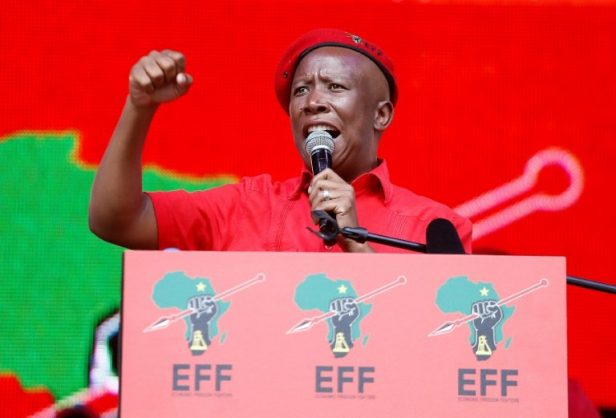
The populist African nationalists Economic Freedom Fighters (EFF) under its self-styled “Commander-in-Chief” Julius Malema increased from 6 to 10.8 percent and was expected to do even better. The racist and articulate demagogue Malema once said: “I have not called for the slaughter of whites, not yet.” The former ANC youth leader had been expelled from the party and has made the land question – “Expropriation Without Compensation” – his battle cry. Yet jobs, not land are the main concern of marginalized township voters. Ramaphosa has added conditions to land redistribution, such as not endangering food security and hindering economic growth, because no investor will put money in a country that does not guarantee property rights.
Hope for Renewal
Although equipped with new legitimacy for the reformers, the factional battle for the renewal of the ANC continues and its outcome is not assured. There is the possibility of a fundamental party realignment, a split of the ANC, and the emergence of Zulu secessionism.
Not only the blatant self-enrichment of officials has to be dealt with, but crucial institutions, like the once exemplary Revenue Service, an incompetent police force, and above all the plundered state corporations need to be professionalized. Some of the most implicated politicians had been placed high on the party election list by the ANC secretary general, Ace Magashule, an enabler of the “gangster state” as a recent bestseller is titled.
As long as a robust free media exists, an independent judiciary has the last word, and an active civil society keeps watch, there is realistic hope for renewal. Cyril Ramaphosa has his difficult reform work cut out for himself.
Disclaimer: The views and opinions expressed here are those of the author and do not necessarily reflect the editorial position of The Globe Post.

